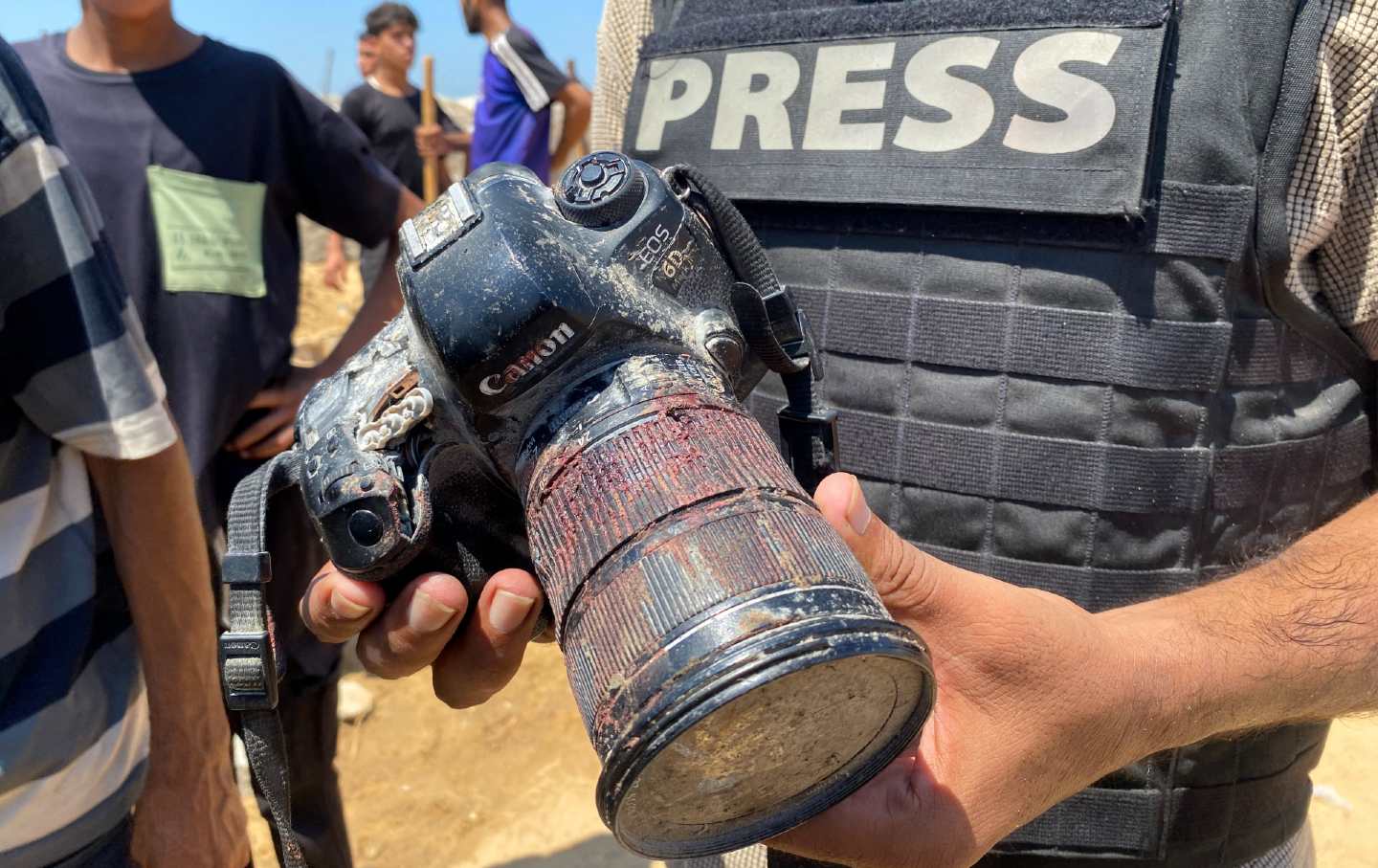
"It is midnight in Gaza City. The drones never leave the sky-we call them zannana -for the way their zzzzzz drills into our heads. Explosions roll from the next neighborhood with every airstrike on homes, or when a remotely operated ground vehicle-an unmanned robot packed with explosives-is steered between buildings and detonated. On the street below my window, a truck waits under the cones of flashlights, stacked with what remains of my neighbors' lives:"
"I have lost more than 65 relatives in this war: my mother and father, four siblings, and their children. Two of my brothers were journalists: One worked with an international news agency; the other was a filmmaker I collaborated with. I myself have been wounded twice. Journalism here is no longer a profession. It is a deadly gamble. In nearly two years, Israel has killed about 250 of our colleagues-journalists, filmmakers, and media workers-in Gaza."
Drones never leave the sky, nicknamed zannana for their buzzing; explosions follow airstrikes and detonations of unmanned explosive ground vehicles. Neighbors repeatedly flee, hauling mattresses, blankets, and furniture turned to firewood because fuel is nearly absent after almost two years without gas or diesel. Families shelter in unfinished, damaged apartments, debating whether to join southern convoys. Repeated displacement and continual deaths leave no time for mourning. More than 65 relatives have been killed, including parents and siblings; two brothers worked in media. Journalism has become a deadly gamble, with roughly 250 journalists, filmmakers, and media workers killed in Gaza over nearly two years.
Read at The Nation
Unable to calculate read time
Collection
[
|
...
]